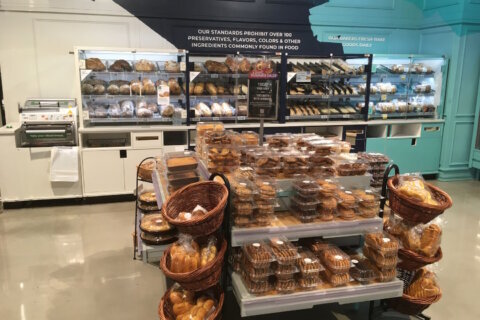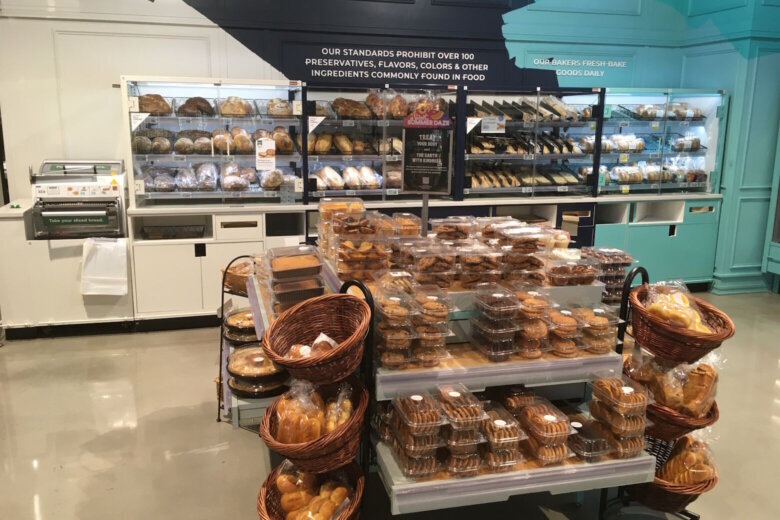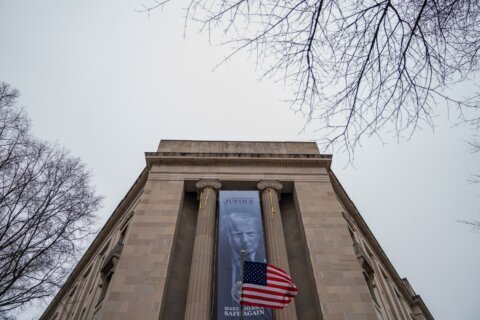
Every day, Whole Foods, as well as other markets and restaurants, sell lots of prepared meals, and fresh-baked goods. But not all of the food will sell by the end of the day. You can buy those leftovers for a bargain.
Recently, a handful of Whole Foods Market stores in the D.C. area joined others nationwide that have partnered with the Too Good To Go app to sell end-of-day leftover prepared meals and baked goods at a steep discount.
“It might be the things at the fresh bar, or anything that was baked in-house or cooked in house. All of that stuff is made that day, and it is still perfectly good that evening. It just didn’t sell for full price,” spokeswoman Sarah Soteroff told WTOP.
To Good To Go launched in Copenhagen in 2016, and expanded to the U.S. in 2020. In the U.S., it said it has saved 13 million meals from waste and is now working with 21,000 partners, including several other food retailers in the D.C. area. It is actively recruiting other partners, but retailers don’t need an invitation to join.
Shoppers can download the app, which is location based, and see in real time what stores are featuring what products at any given time, usually the end of the day and usually with a two hour pickup window.
However, there is a catch: What consumers buy is in “surprise bags,” meaning shoppers don’t know what they’re getting until they’ve purchased it.
For Whole Foods, a surprise bag of prepared foods contains $30 worth of food for $9.99, and a surprise bag from the bakery — cookies, breads, muffins or similar items — contains $21 worth of baked goods for $6.99.
While shoppers can’t request what it is they want ahead of time, they can certainly filter out what they don’t want.
“You can filter by food preference and by dietary restriction, but it is up to the store to indicate if a bag is a specific type of food allergen,” Soteroff said.
Whole Foods and Too Good To Go’s other clients don’t make a profit selling end-of-day leftovers. They also don’t lose the money they would by throwing it out.
Too Good To Go called it a revenue recouping tool. It charges a flat $1.79 for each transaction and Soteroff said it gets shoppers to come into the store.
“For most stores we see … around an $18 to $25 incremental purchase that those customers then make on regular-priced items,” Soteroff said.
Whole Foods, which has stated it has a goal of cutting food waste in half by 2030, now features the Too Good To Go app at more than 450 stores nationwide.
The Too Good To Go app is free to download and browse. Any payments are made directly through the app, not to the retailer. Too Good To Go said it has more than 100 million registered users globally.
Get breaking news and daily headlines delivered to your email inbox by signing up here.
© 2024 WTOP. All Rights Reserved. This website is not intended for users located within the European Economic Area.









